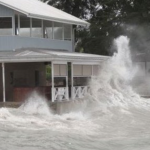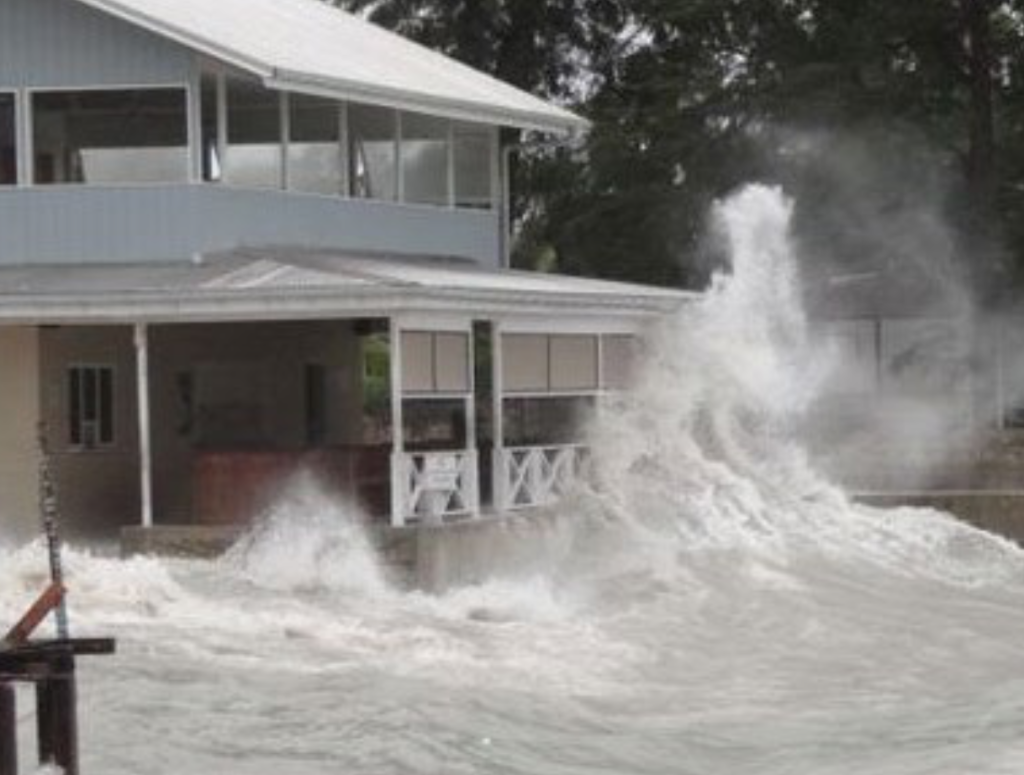With the release of the NextGeneration Climate Projections for the Western Tropical Pacific, a series of research publications has been published to provide further analysis and insights on future projected climate and its implications for the Pacific region.
Tropical Cyclones and Climate Change: Implications for the Western Tropical Pacific
This research report examines the scientific connections between climatology of tropical cyclones (TCs) and climate change for the Western Tropical Pacific and Timor-Leste. Major research findings include:
- The El Niño Southern Oscillation (ENSO) is a major driver of year-to-year variability in TCs impacting island nations.
- Over the past decades, the mean number of TCs impacting island nations has declined, however the number of severe TCs has increased considerably over the same period.
- In a future climate, TC activity is projected to decrease further in the Pacific, with the exception of regions near Marshall Islands in the Central North Pacific.
- ENSO will continue to be a dominant large-scale climate process, influencing the natural variability of TCs in future. However, TCs are projected to become ~20- 40% more frequent in the entire central Pacific region during future climate El Niño periods than present-climate El Niño periods.
- Climate model experiments point towards a likely increase in severe TCs and associated rainfall globally as climate warms. For the Pacific, TC-induced extreme wind gusts and rainfall are also likely to increase under warmer climate conditions.
Economic Impact of Climate Change: Preliminary Regional Analysis and Sectoral Case Study for Vanuatu
This research report evaluates the economic effects of two standardised climate change scenarios (a global average temperature increase of 2°C and 4°C) using a multi-regional Computable General Equilibrium model. The research used estimations of damage function parameters from a World Bank study to represent five potential climate impacts at a regional (Pacific) and national (Vanuatu) scale:
- sea level rise;
- variation in agricultural yields;
- heat effects on labour productivity and human health;
- and household energy demand.
The report finds that the negative effects of climate change will be significantly felt by all Pacific Island economies. For example, the largest impact of temperature increases is the loss of labour productivity due to heat stress and health incidence, followed by the loss of agricultural productivity.
Extreme Sea Level Climatologies for the Western Tropical Pacific
This research report provides high level information on the contributions to extreme sea levels based on numerical analysis of tide gauge observations and wave data products for the Cook Islands, the Federated States of Micronesia, Fiji, Kiribati, Marshall Islands, Nauru, Palau, Papua New Guinea, Samoa, Solomon Islands, Tonga, Tuvalu and Vanuatu.
The research used tide gauge data and other data products including an ocean waves reanalysis, analytical models and statistical analysis.
The report contains preliminary estimates of extreme sea levels for each country, which can be used to calculate return periods to inform aid and investment decisions, and to provide insights into the nature of extreme sea level events when they occur.



